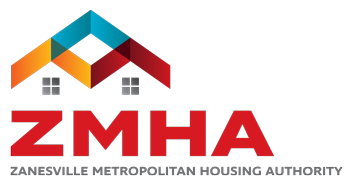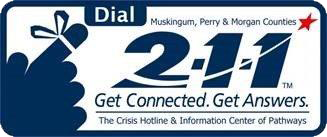Policies, procedures and regulations for landlords, property owners, and managers in Muskingum County.
ViewHousing Choice Voucher Program (Section 8)
Dear Owner,
Thank you for your interest in the Zanesville Metropolitan Housing Authority (ZMHA) Housing Choice Voucher Program (HCVP). This is a general guide to policies, procedures and regulations that govern the program.
The HCVP (Section 8) is designed to fill the gap between what a family can afford to pay in rent and the actual rent payment. All HCVP (Section 8) families and owners are subject to federal rules and regulations. ZMHA will make every effort to inform you of HCVP (Section 8) rules, and to advise you of how any new or revised rules affect your participation in the program.
We look forward to you becoming a partner in the ZMHA’s mission to provide affordable housing to low-income families in Muskingum County. If you have any questions after reviewing this material, please contact the ZMHA HCVP (Section 8) Department at (740)-454-6866.
Landlord Links:
Landlord Payment Portal
Forms & Downloads
FAQ's
Report Fraud & Abuse
Contact Us
Landlord Forms & Downloads
Housing Quality Standards (HQS)
Reference guide for use by a landlord participating on the Housing Choice Voucher Program in Muskingum County.
ViewTO CHANGE the BANKING ACCOUNT your HAP PAYMENTS (Housing Assistance Payments) are DEPOSITED INTO
ViewFrequently Asked Questions
The Housing Choice Voucher Program is funded by Congress and the President and is under the U.S. Department of Housing and Urban Development (HUD). The program is administered by the Housing Authority to provide decent, safe, and sanitary affordable rental housing for very low income families. The Housing Authority assists these families by paying a portion of the contract rent to the landlord and the family pays a portion of the rent to the landlord. The family pays approximately 30 percent of their monthly income as their share of the rent.
Families with income that is 50 percent or less of the median income for the area qualify as very low income families. An eligible family can be a single person household.
The landlord must attract a family that has already been determined as eligible and has been issued a Voucher indicating eligibility by the Housing Authority. The landlord is responsible to screen the family for suitability as a tenant, just as they would any prospective tenant.
If the landlord decides to rent to the family, a Request for Tenancy Approval (RTA) is completed by the landlord and submitted to the Housing Authority. Eligible families are given the RTA at the time they are issued a Voucher. If the rent amount is approvable by standards set by HUD, the Housing Authority schedules an inspection of the rental. If the unit meets HUD Housing Quality Standards, the lease is signed by the landlord and tenant and the contract is signed by the Housing Authority representative and the landlord.
The landlord is expected to collect a security deposit and the family's share of the rent. The landlord is expected to maintain the property's overall condition and see that the basic plumbing, electrical, heating and cooling systems, etc. are functioning properly. Should the family violate the terms of the lease or fail to pay their portion of the rent, the landlord would evict the family through normal court eviction process and send the Housing Authority copies of any notices that the tenants were served.
The Housing Authority will deposit its portion of the rent (Housing Assistance Payment) via direct deposit to the landlord's bank account on the first "business" day of each month.
The participating family is responsible to follow all the terms of the lease. The family is responsible for normal housekeeping and maintenance of the rental unit. Serious or repeated lease violations can result in the termination of housing assistance under federal regulations. If the family damages the rental unit beyond normal wear and tear, they are responsible to pay for damages. Damaging the unit may also result in the termination of a family's assistance.
Any housing may be eligible: single family homes, condominiums, apartments, mobile homes, townhouses, duplexes, etc. All rental units must conform to Housing Quality Standards and meet local code requirements.
Download StandardsThe rental unit can be located anywhere in Muskingum County.
Not in the first year of the lease and only at the time of the client's annual recertification (completed each year on the anniversary date of the lease on file). Approximatly 90 days prior to the annual recertification date, you will receive a letter giving you the opportunity to request any changes to the rental contract. Please note, that in the event a rent increase is denied, the client is not allowed to pay the difference in rent.
Yes, the owner may sell the property while it's under contract. The current owner must contact the Housing Authority and request new owner paperwork.
The rental units are inspected prior to a contract being signed and at least annually thereafter.
The Housing Authority portion of the rent is deposited into your bank account on the first business day of each month. The voucher program allows you to fill a vacancy in a rental unit with a tenant who, by being on the program, gives you greater assurance of being able to afford the unit. If a participant's income decreases and they report the change to the Occupancy Specialist, the Housing Authority may be able to increase payments to make allowances for the decrease in the tenant's income.
No. The resources of the Housing Authority are limited and we can only do inspections after your unit is selected by an eligible family and a "Request for Tenancy Approval" form is completed and approved by the Housing Authority. We also request that you make any necessary repairs prior to an inspection to avoid the necessity of another inspection and a delay in the start of the lease and contract effective period.
The unit needs to meet basic building codes for safe and sanitary housing. Doors and windows must open, close and lock. Plumbing and electrical systems must work properly. Heating must be adequate. Most well maintained rental units should be able to pass an inspection. For more complete information on inspections, please see the brochure, A Good Place to Live in Word format.
DownloadIf you are a tenant or landlord and are having problems with a tenancy, the Housing Authority encourages both sides to sit down together and review the lease that the two of you have signed. Most leases address problems that could arise during tenancy. The Occupancy Specialists at the Housing Authority are not attorneys and are not allowed to give legal advice to either a tenant or landlord.
Remember that if a participant is evicted from a rental unit due to lease violations they may lose their housing assistance. It is very important for any problems to be resolved as soon as they arise.
To read landlord/tenant laws for the State of Ohio, visit the following website: http://codes.ohio.gov/orc/5321
Federal law prohibits housing discrimination based on your race, color, national origin, religion, sex, family status, or disability. To file a Fair Housing Complaint, visit the following website: https://portal.hud.gov/hudportal/HUD?src=/topics/housing_discrimination housing_discrimination
The Fair Housing booklet, "It's Your Right" is available from HUD.
Download BookletThe Fair Housing Discrimination Complaint form is available online and you can download a printable form from Hud.gov.
Download FormTenants may qualify for free legal assistance. Contact Southeastern Ohio Legal Services at 740-345-0850 or 888-831-9412.

